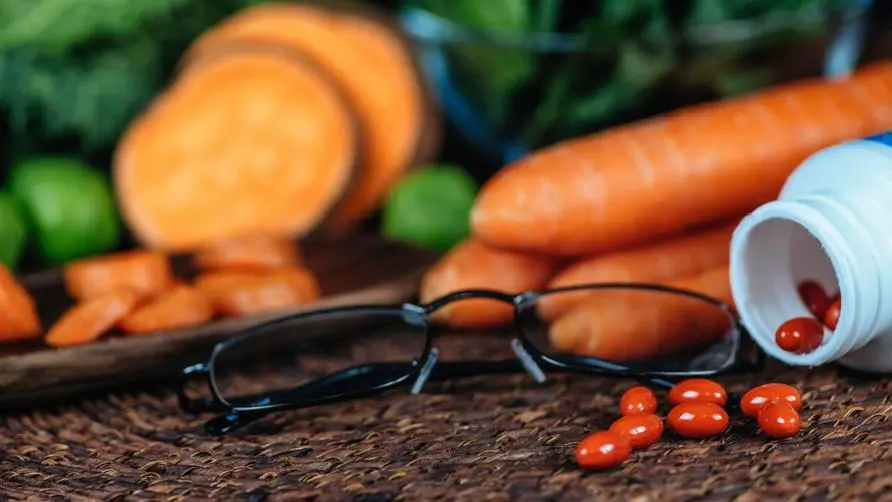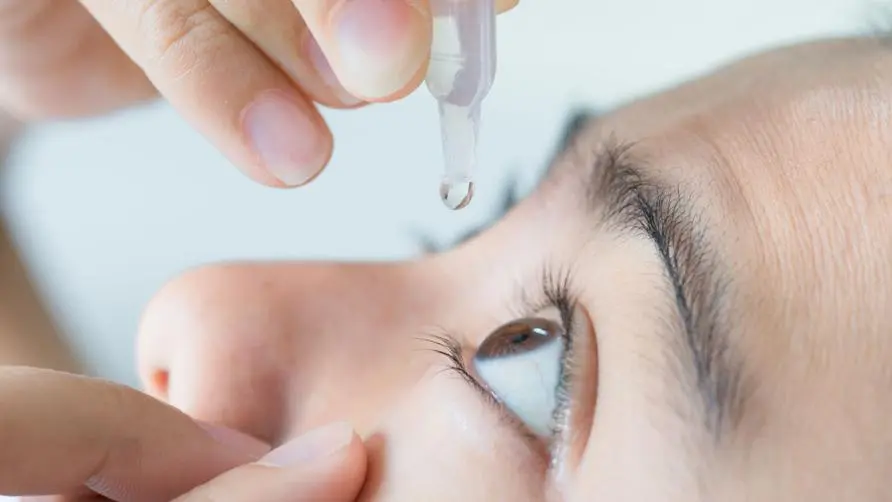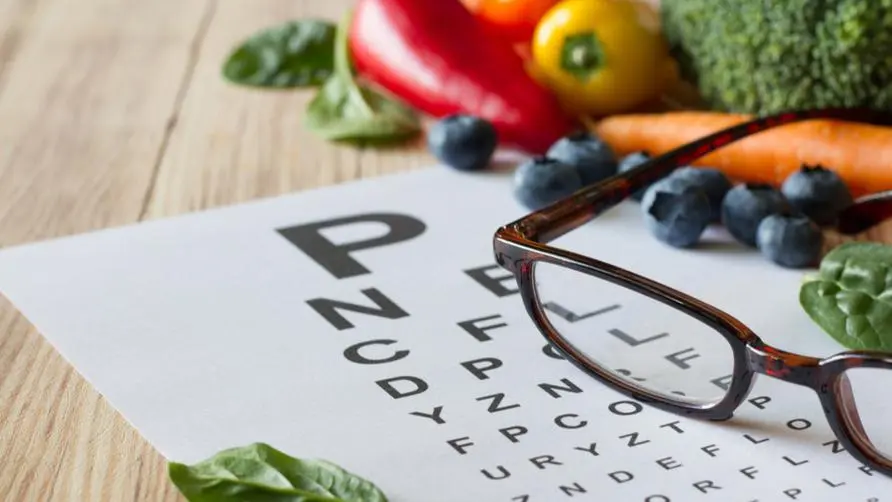How to take lutein and how to choose it to be effective? Nutritionist reveals the complete guide: Master the "6 principles" before buying

I use the computer almost all the time at work, and after get off work I just want to scroll on my phone to relax. However, my eyes always feel sore for a long time. Friends around me say that eating “lutein” is good. But there are hundreds of kinds of lutein, how to take them to be effective? Nutritionist Luo Jiyi of Lianxin Clinic said that during the nutritional consultation process, she often hears that patients have hundreds of doubts about various lutein products.
Without positive treatment results, you may become blind! What are the signs of macular degeneration?
Nutritionist Luo Jiyi explained that in the clinic, patients most often say that “eating lutein can prevent macular degeneration.” Macular degeneration generally occurs in people over 50 years old, people with high myopia, and diabetics. If you suffer from macular degeneration, you may have symptoms such as visual impairment, black spots or blurring in the center of the field of vision, straight lines looking wavy, and reduced sensitivity to color or contrast. Without active treatment, severe cases may lead to blindness.
Nutritionist Luo Jiyi explained that if the eye is regarded as a camera, the retina is the film of the camera, and the macula is the main “photosensitive part”. The macula is mainly composed of lutein and zeaxanthin, so if you want to prevent macular degeneration, the intake of lutein is very important. Lutein co-exists with zeaxanthin in nature. Both are important sources of nutrients for the macula. They have good antioxidant capabilities and can strengthen the macula to resist free radical damage. They also absorb light and filter Blu-ray and other functions.
However, lutein supplementation can only be used for “prevention rather than treatment.” Some current studies show that supplementing lutein can improve some visual functions and reduce the chance of worsening of age-related macular degeneration, but it has no effect in treating the disease. Therefore, if you have any eye problems, it is recommended to seek examination and treatment from a professional doctor to avoid missing the golden opportunity.
Lutein cannot be synthesized by the human body itself? What natural foods are rich in lutein?
How to supplement lutein through daily diet? Nutritionist Luo Jiyi pointed out that lutein is a natural fat-soluble carotene that the human body cannot synthesize on its own and needs to be obtained from natural foods or additional nutrient supplements. In nature, foods rich in lutein are mostly dark green vegetables, orange vegetables, and fruits:
Dark green vegetables: spinach, cabbage, broccoli, green peppers, etc.
Orange plants: yellow zucchini, corn, pumpkin, carrot, etc.
Fruits: tomatoes, oranges, kiwis, apples, etc.
Studies have pointed out that daily intake of 6 mg of lutein in healthy adults can slow down the risk of macular degeneration. However, Taiwan Ministry of Health and Welfare recommends that it should not exceed 30 mg per day. Eating more is not beneficial.
How to take lutein and how to choose it to be effective? Nutritionist: Master the “6 principles” before buying
There are many lutein products on the market, how do you choose the most effective one? Nutritionist Luo Jiyi revealed that when choosing lutein health food, you can grasp the following 6 principles:
Compound prescription is better than single prescription
Compound formulas and high-content combinations can multiply the health-care effects. For example, combining anthocyanins and astaxanthin with strong antioxidant power can make lutein more effective. In particular, high-dose anthocyanins not only have strong antioxidant power, but also stimulate the regeneration of “rhodopsin”, prevent retinal damage from blue light and ultraviolet rays, and improve night vision. Studies have shown that a daily intake of at least 50mg of anthocyanins can have a maintenance effect.
Avoid beta-carotene formulas
When choosing compound health foods, be careful not to include “beta-carotene” in the formula. Because beta-carotene and lutein are both carotenes, they compete with each other for absorption in the gastrointestinal tract, causing the absorption rate to decrease. In addition, some studies have pointed out that beta-carotene will increase the risk of lung cancer in smokers, so try to avoid formulas containing beta-carotene when choosing.
Choose lutein that has a brand name and meets the required dosage
The daily lutein intake is recommended to be at least 6 mg per day and no more than 30 mg at most. In addition, branded raw materials are a guarantee! Choosing lutein products that use raw materials from well-known brands or even patented raw materials can better ensure the quality of the raw materials.
The free type is better than the esterified type
Lutein is divided into free type and esterified type. The free type has a smaller molecular weight and can be directly absorbed by the human body without additional hydrolysis.
Lutein and zeaxanthin, the golden ratio of 10:2 is the most effective
According to the research conclusion of the National Institutes of Health (NIH), the “10:2 golden ratio” of lutein and zeaxanthin will have the best absorption rate and effect. When choosing, you may wish to pay attention to whether the lutein product meets the golden ratio.
Having an inspection report is the most reassuring thing
The inspection of raw materials and products represents the good manufacturers’ concern for the rights and safety of the place of consumption. Therefore, if the product has inspection reports for heavy metals, pesticides, etc., it can become an indicator for selection.
How to choose among hundreds of capsules, drinks, and jelly products of lutein?
There are hundreds of lutein products, including capsules, drinks, and even jelly. How do you choose? Nutritionist Luo Jiyi has sorted out the advantages and disadvantages of various dosage forms. People can refer to the table in the picture above and make a choice according to their personal preferences.
What details require special attention when using lutein? Nutritionist Luo Jiyi reminds the public that lutein is a “fat-soluble nutrient” and is recommended to be consumed after meals or with greasy foods for better absorption. In addition, in order to maintain the concentration of lutein in the macula, it must be taken continuously for at least 3-6 months without interruption, so that it can accumulate in the body and achieve the effect. Basically, there is no research indicating that lutein has acute or dangerous toxicity; however, if infants, young children, pregnant women, breastfeeding people or those with special diseases want to take it, it is recommended to consult a doctor or medical professional first.
In addition to taking in sufficient nutrients to take care of your eyes, you should also be careful not to overuse your eyes in daily life. Therefore, when using 3C products, you must take a 10-minute break every 30 minutes, and do not use your eyes for a long time in places with insufficient light. Doing moderate eye relaxation exercises, etc. These good eye habits can effectively protect your eyes and prevent diseases.
Further reading:





